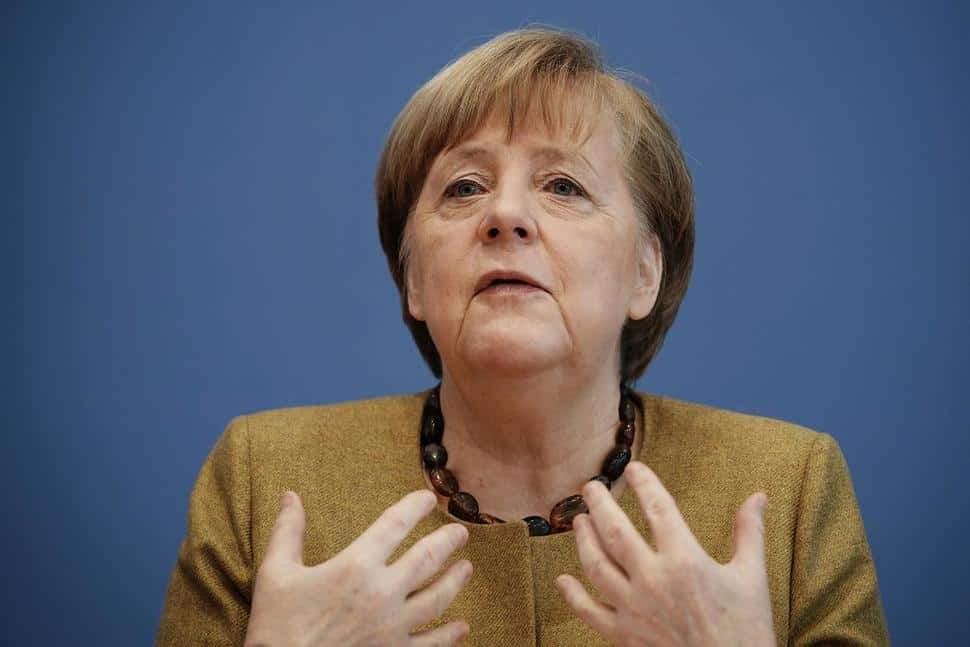Germany's Merkel to Discuss Russia Pipeline Project With US

German Chancellor Angela Merkel said Thursday that she isn't abandoning a German-Russian gas pipeline project that faces U.S. sanctions, but wants to talk to the new administration about the issue.
The Nord Stream 2 pipeline, which would bring Russian gas to Germany under the Baltic Sea, faces bipartisan opposition in the United States.
Washington has said that the project would make Europe more dependent on Russian gas and hurt European energy security. The Kremlin has responded by accusing the U.S. government of trying to promote sales of its own liquefied natural gas.
Nord Stream 2 is owned by Russian state company Gazprom, with investment from several European companies. The pipeline construction was suspended in December 2019 when a Swiss firm pulled its vessels out of the project amid threats of U.S. sanctions, forcing Gazprom to try to complete it with its own resources.
Earlier this week, before President Joe Biden took office, Germany’s Economy Ministry said it had been informed of U.S. sanctions against the Russian pipe-laying ship Fortuna and its owner.
Merkel has consistently stood by the project. She acknowledged Thursday that she said last summer the poisoning of Kremlin critic Alexei Navalny, who was treated in Germany after being exposed to a nerve agent, “could play a role.” Navalny was arrested immediately after returning to Russia on Sunday.
But “I am saying today that ... my basic attitude has not yet changed in such a way that I would say that the project shouldn't happen,” Merkel added.
“We will of course speak with the new American administration,” she said. “We must also talk about what economic relationships with Russia in the gas sector are acceptable and what aren't. And it's not as if there were absolutely no trade relations between the United States of America and Russia in the oil sector, for example.”
“We must put everything on the table, and talk about whether we want to have no trade with Russia in the gas sector at all, and what dependence is tolerable,” Merkel added. She reiterated Germany's objections to “extraterritorial sanctions.”
Gazprom says that 6% of the pipeline, or about 150 kilometers (93 miles), remains to be completed and insisted that it intends to complete the project soon — though it has acknowledged there's a risk the project could be suspended or canceled.
In general, Merkel said that “there is simply a much broader political overlap with President Biden” than with predecessor Donald Trump. She pointed to his first actions after taking office, such as his return to the Paris climate agreement and withdrawal of a Trump move to withdraw from the World Health Organization.
But Merkel, who has warmly welcomed Biden's election, cautioned that not everything will be smooth — in line with her long track record of keeping public expectations low.
“There will be differences of opinion with the Biden administration, too,” she said.
Photo: German Chancellor Angela Merkel talks to the media during a press conference on the current situation in Berlin, Germany, Thursday, Jan. 21, 2021. Topics include the decisions taken by the federal and state governments to combat the Corona pandemic, the Chancellor's upcoming virtual consultations with the heads of state and government of the European Union (EU), and relations with the United States following the inauguration of the new president. (Michael Kappeler/Pool via AP) THE ASSOCIATED PRESS
Link: Germany's Merkel to Discuss Russia Pipeline Project With US | Business News | US News











